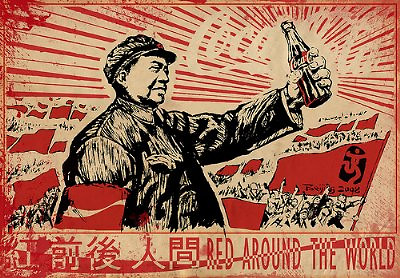 NEWS
NEWS
 NEWS
NEWS
 NEWS
NEWS
![]() It’s been revealed that Coca Cola’s internal computer network was infiltrated by Chinese hackers for more than a month without its knowledge.
It’s been revealed that Coca Cola’s internal computer network was infiltrated by Chinese hackers for more than a month without its knowledge.
The fizzy pop firm’s defensives were breached after an email containing a malicious link was sent to an executive in 2009. At the time, Coca Cola chose not to disclose the hack, according to the Securities and Exchange Commission (SEC). The breach allowed the hackers to operate for a whole month with Coca Cola’s knowledge, during which time they logged and stole vast amounts of commercially sensitive information.
The news has led to suggestions that Coca Cola’s proposed $2.4 billion takeover of China Huiyuan Juice Group collapsed as a direct result of the breach.
Bloomberg reports that the hack took place after hackers successfully conned Paul Etchells, Coca-Cola’s deputy president for the Pacific region, into thinking he’d been sent a link from another senior executive. The moment Etchells clicked on the link, the malware infected his computer and began installing keystroke loggers onto his machine. By infiltrating Coca Cola’s network, hackers were able to read emails sent between senior executives of the firm, and steal passwords to access secure company files.
Just three days after Coca Cola discovered the security breach, it pulled out of its proposed acquisition of China Huiyuan Juice Group, which would have been the largest ever US takeover of a Chinese firm if it happened.
According to Bloomberg, the hackers were likely to have been backed by the Chinese state, although there is no proof of this.
Coca Cola’s decision not to publicize that it had been hacked highlights a reluctance among the US’ biggest corporations to admit to security failures, despite the SEC issuing updated cybersecurity guidelines suggesting that it was in the interests of companies to do so.
The SEC says that transparency over these issues is in the interests of investors and stakeholders in these companies. However, most companies refuse to come clean, no doubt due to fears of a negative impact on their stock price and/or reputation.
Jacob Olcott, a cyber security expert who previously advised Congress, told Bloomberg that investors simply have no idea what is happening inside the companies they invest in.
“Companies currently provide little information about material events that occur on their networks,” he said.
THANK YOU